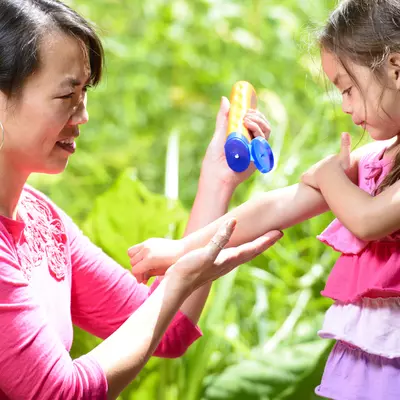- AdventHealth
The "Tide Pod Challenge" isn't the first time the dangers of ingesting laundry detergent have made headlines.
Since the product first hit shelves back in 2012, poison control centers around the country have received tens of thousands of calls - a result of young children mistaking the squishy, colorful pods for candy or toys.
That year, the U.S. Centers for Disease Control and Prevention (CDC) went so far as to deem laundry detergent pods an emerging public health hazard. In 2017 alone, poison control centers took more than 12,000 calls about laundry pods.
Dr. Dennis A. Hernandez, medical director of Pediatric Emergency Services at AdventHealth, warns that ingesting detergent pods of any kind is dangerous and potentially deadly, whether you're 5, 15 or 50.
"All of these pods - not just Tide Pods - vary in terms of the chemicals they contain," says Dr. Hernandez. This includes combinations of detergent, bleach, fabric softeners and stain removers.
"These are very irritating chemicals that can cause significant burns to the skin, mouth, esophagus and stomach," he says.
What happens when a person bites into a pod can range from those chemical burns to far more dangerous complications. Wrapped in plastic under pressure, the chemicals can explode into the mouth when bitten - causing irritation and burning.
Once the pod has burst, the gravest danger occurs if the detergents are inhaled into the lungs.
"Although the most common effect is irritation from the chemicals, which can cause vomiting when they get to the stomach, the real concern is that they can be inhaled into the lungs," says Dr. Hernandez. "That's where the most serious cases, and potentially even deaths, will occur."
Swelling of the lungs, or pulmonary edema, can make it difficult or impossible for a person to breathe. In cases like this, patients must be intubated or ventilated to keep them breathing. In the worst cases, patients could fall into a coma or even die from the complications.
Another possible side effect is scarring in the esophagus, which can cause narrowing and blockages that make it difficult to eat and drink. "Once that happens, it's for life," Dr. Hernandez warns.
In general, the younger the person is the higher the risk of critical illness or complications. Since 2012, there have been eight deaths among children 5 and younger as a result of ingesting pods. Still, a college student in Utah was recently hospitalized after taking part in the Tide Pod Challenge.
Dr. Hernandez says that parents should take their child to an emergency room immediately if they know or suspect he or she has ingested a laundry pod, or any household chemical.
"The sooner you seek medical attention, the more likely that interventions can take place to at least minimize the potential for serious complications," he says. The symptoms of pulmonary edema can also be sneaky.
"If someone inhales [chemical detergents], they could feel fine right now but very quickly develop swelling of the lungs. Any child that is exposed to any kinds of detergents should be observed for quite a while in the emergency room."
Parents who have a young child in the house should store laundry pods (and all cleaning products) safely out of reach - whether on a high shelf or in a child-proofed cabinet. Some laundry pods come in child-safe packaging for extra safety, but even those should be kept far from little hands. Always be sure to close the package fully after use.
"You want to keep them away from kids, or if possible, not even buy pods if you have little ones," advises Dr. Hernandez. "But otherwise, be sure to keep them where they can't reach."
Click here for more information on our AdventHealth Pediatric Emergency Care department.



